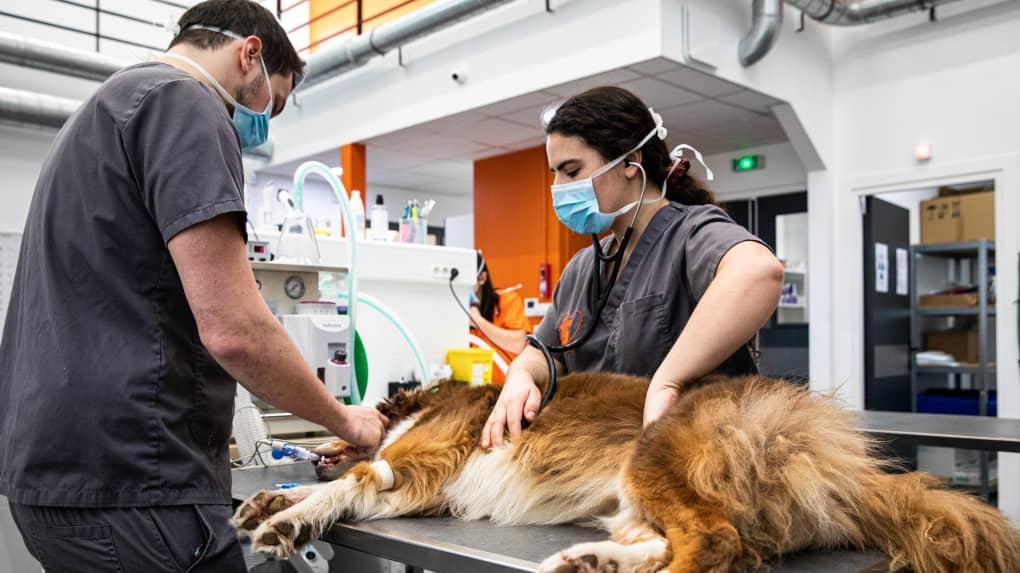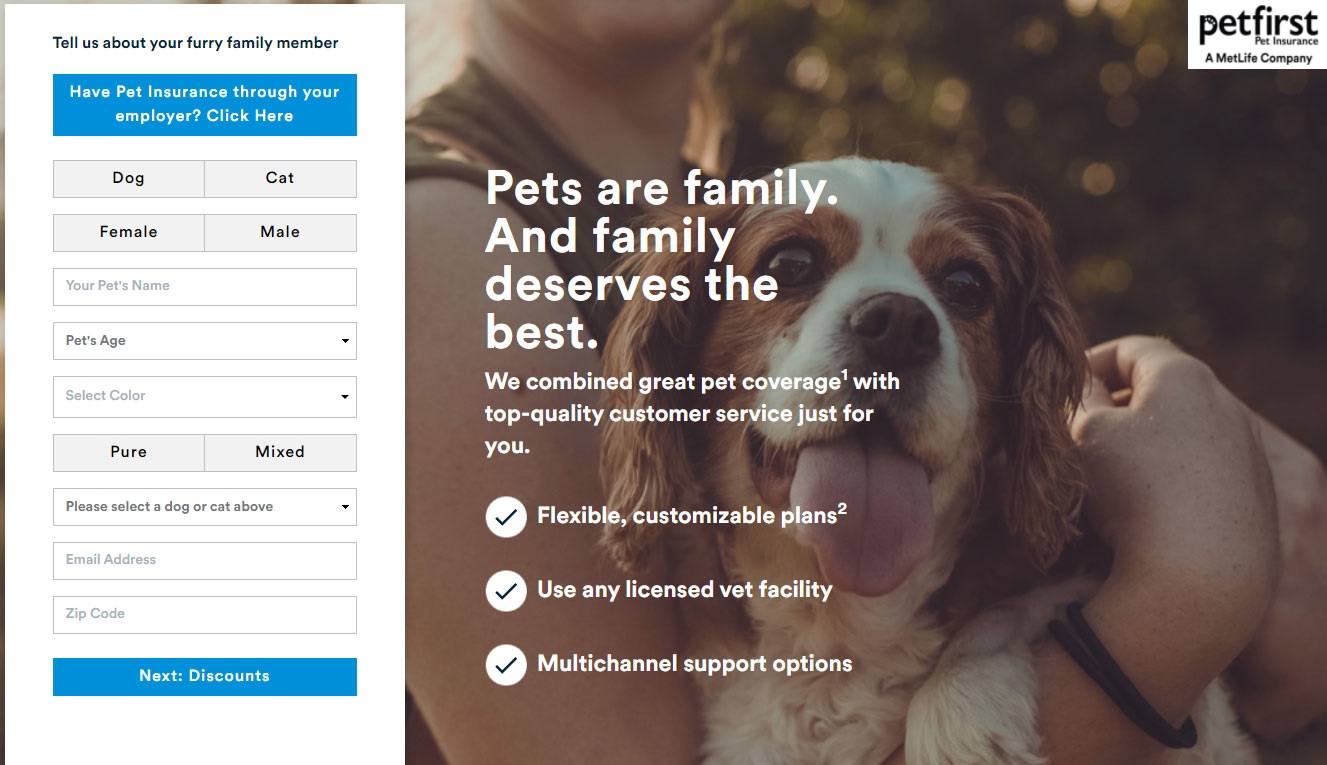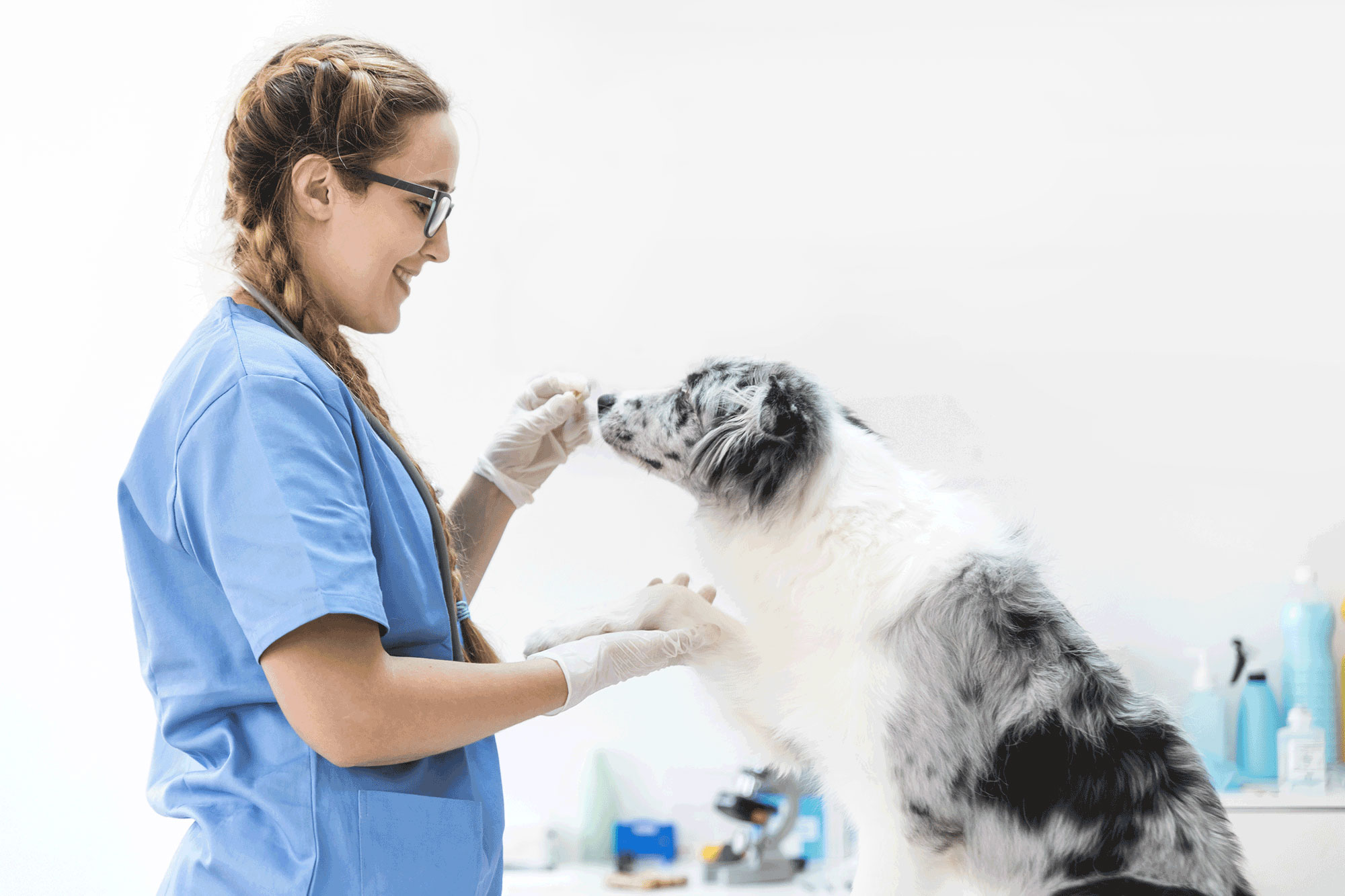How to choose a vet
Most owners are concerned about their dog's health and will do anything to provide the best care in case of illness or accident, but also for preventive purposes.
Finding a competent veterinarian is crucial to your pet's health and well-being! Today, we'll explain how to choose a veterinarian you can trust to help you care for your four-legged friend throughout his or her life.
Veterinary practice, clinic or hospital: Which facility should you choose for your dog?
When looking for a veterinarian for your pet, you may have noticed that there are different types of facilities that care for our pets. What are the differences between these facilities, and which one will be best for your dog?
Simply put, the main difference between a practice, a clinic and a hospital is one of size and resources.
Veterinary practices are often small facilities with a single independent veterinarian. This type of establishment can generally take care of all the common pathologies and injuries of the dog, but may lack the equipment to perform specific treatments or examinations. Office hours are flexible, but in most cases are more limited than those of clinics and hospitals.
Veterinary clinics are medium-sized facilities, often better equipped than veterinary practices. These facilities are usually better staffed, including veterinary assistants who can supplement the veterinarians in the care and hospitalization of animals. All veterinary clinics are required to have at least two surgical and hospitalization modules.
Unlike clinics, veterinary hospitals are open 24/7. They must have at least 6 full-time veterinarians and are able to treat all kinds of injuries and pathologies. Fully equipped, they are also able to perform all the tests your pet may need.

How do I choose the right veterinary facility for my dog?
Now that you know the main differences between veterinary facilities, here are some clues to help you choose the one that will best suit your pet:
Veterinary practices have the advantage of being more user-friendly, in that your dog will be cared for by a single veterinarian. This guarantees a global care, by a professional having a look on all the medical history of your companion. The care is therefore more likely to be personalized and perfectly adapted to your dog's needs.
Nevertheless, the veterinary office is not always the right place to treat a dog that is seriously injured or suffering from a rare pathology and/or requiring specific care.
This structure is therefore more suitable for hardy and healthy dogs that only need regular preventive care (vaccination, sterilization, etc.). Veterinary clinics are suitable for dogs with fragile health or needing regular care requiring specific equipment.
However, the follow-up of your pet will not necessarily be carried out by a single veterinarian, which is a drawback for dogs that are used to consultations...
Finally, the veterinary hospital is generally the place where the owner brings his dog in case of emergency or to perform specific analyses prescribed by a veterinary practice. The more equipped the structure is, the higher the fees are: a point to take into account when you have a tight budget!
Finding the right veterinarian for your dog: practical criteria
Beyond the types of structures to be favored, you will also have to look at certain practical aspects that will guide your choice.
Scheduling and location
If you're a busy person, you may find it difficult to find a time to take your pet to the vet, whether for a routine visit or for a health problem. In fact, it is in your best interest to turn to a clinic or a hospital, whose opening hours are often longer than those of a veterinary practice.
Hospitals are indeed open 24 hours a day, hours that some offices and clinics also practice, but more rarely. Similarly, if your doggy is carsick and reluctant to get into a car, the best solution is to turn to a facility close to your home when possible. However, this criterion cannot take precedence over the quality of the care offered and the seriousness of the practitioner.
Fees and equipment
As mentioned earlier in this article, the more sophisticated the veterinary facility is, the higher the fees. However, there are clinics that offer low prices for owners with small budgets.
Before turning to this type of structure, I strongly recommend that you learn about the concessions made by these practitioners in order to be able to offer attractive prices. Indeed, some structures that pull the prices down limit the expenses (for example in maintenance or in surface allocated to the hospitalized animals) and the quality of the care given can be drastically reduced.
Trust and feeling
Do not hesitate to enter the veterinary structure that interests you to greet the staff and possibly the practitioner, if he is available. The feeling you will have with your veterinarian is important, especially when it comes to creating a relationship of trust! If you have the opportunity, don't hesitate to talk with the representatives of the structure in question:
Do they seem passionate about their job? Are they concerned about your pet's fate? Are they aware of the latest advances in veterinary medicine? Also, don't hesitate to take a look around to judge the cleanliness and comfort of the facility.
Most veterinary facilities make an effort to accommodate pets in a waiting room designed to reduce their stress, for example, by providing high spots for cat cages. If you feel confident, make an appointment for an initial test visit with your pet.
Observe the interaction between the practitioner and your pet: if they seem to get along, that's a good sign!

Evaluating the seriousness and reliability of a veterinarian before entrusting him with your dog
Talking about evaluating a veterinarian and his skills may seem a little grotesque, especially from laymen in the field... However, it is not a question of evaluating the technical knowledge of the practitioner, but rather of determining his seriousness and professionalism through his reputation and fame.
Registration of veterinary behaviourists
Not all of them are, by far. If you want to have a real canine specialist, choose someone who has been trained not only to treat diseases, but also to observe and understand canine behavior.
Online reputation
Today, many veterinarians have an online storefront or at least a Google Business page. Some structures, most often clinics and hospitals, also have profiles on social networks, web pages that will allow you to collect comments made by their patients. Through these, you will have the opportunity to read the opinions of Internet users on the care given to their pet, the cleanliness of the structure and the seriousness of the nursing staff.
However, be careful not to retain only the bad comments: be sure to keep a critical mind! As in all professional fields, it is mostly the unhappy clients who tend to tell their unhappy experiences, while the satisfied clients remain silent. Therefore, take the necessary distance to evaluate the seriousness of the professional of your choice without letting yourself be totally biased by a few worrying reviews.
Renown and involvement in research
Some veterinarians have an important reputation, often due to the use of medical techniques at the cutting edge of research or to an excellent survival rate of their canine patients. The fees offered by these professionals are sometimes higher because of the exceptional quality of their services, but this is not always the case. Finally, other professionals are involved in veterinary research and are active members of different organizations specialized in this field.
Word of mouth
One of the best ways to find a trusted veterinarian is, of course, to ask people you know when you have the opportunity. If you have relatives who also own a dog or a cat, don't hesitate to ask them for information about their pet's veterinarian. Based on the information you gather in this way, you will be able to assess the interest of the veterinary facilities that your friends and family frequent for your dog's needs.
Long-time dog owners will generally be better able to direct you to a competent professional. Their experience will allow them to compare different canine health professionals who have treated their dogs over the years and to give you sound advice. Choosing a veterinarian for your dog is exactly like choosing a doctor for your dog!
Once you have found a veterinarian you can trust, you can also find out about alternative medicine specialists, especially if your pet is facing a long term illness. Medical advances and alternative medicines are not only for humans, and can even be surprising, as long as you keep a follow-up with a traditional veterinarian.
Loving and educating your pet also means protecting it against the hazards of life. This is why we strongly recommend that you take out health insurance as soon as possible. This will save you astronomical veterinary fees in case of accident or illness.


